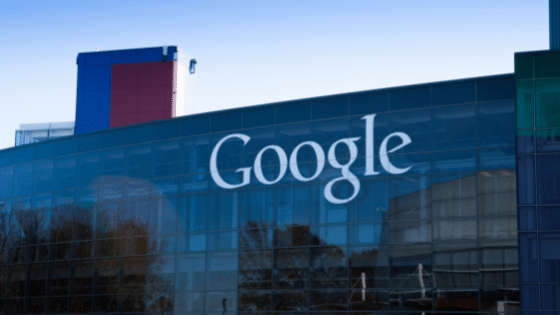Google realized it wasn’t going to meet a milestone it committed to last year phase-out third-party cookies. The company announced in a blog post yesterday that it will delay its plans to withdraw support of third-party cookies from early next year to later in 2023.
The stakes are high. Eliminating cookies is s risk to Google’s own business model. But Google understands, if reluctantly, that the tide has turned against invasive tracking methods like cookies. Plus it’s facing the looming specter of privacy regulations around the world that will put the squeeze on how it collects data. Google needs to come up with something that the search industry and regulators will accept. And that doesn’t kill its ads business. Apparently, it needs some more time to figure this out.
More Time in the Sandbox
Google has been pursuing the end of cookies through an initiative it calls the “Privacy Sandbox”.
“The Privacy Sandbox initiative aims to create web technologies that both protect people’s privacy online and give companies and developers the tools to build thriving digital businesses to keep the web open and accessible to everyone, now, and for the future,” wrote Vinay Goel, Privacy Engineering Director, Chrome, in yesterday’s post.
“To make this happen, we believe the web community needs to come together to develop a set of open standards to fundamentally enhance privacy on the web, giving people more transparency and greater control over how their data is used. In order to do this, we need to move at a responsible pace.”
Not Flocking to FLoC
When we reported on Google’s plans in March, the company was pushing a new API-based tracking regime called FLoC. It stands for Federated Learning of Cohorts. Here is what we wrote in March.
[David Temkin, Google’s Director, Product Management, Ads Privacy, and Trust] says Google will move to an API-based system, which he argues is both effective and privacy-friendly. Google’s next phase of performance tracking comes out of its Privacy Sandbox initiative. This was an effort launched in 2019 to try and create a system that’s sustainable in a privacy restrictive environment.
A basic premise of FLoC — or interest-based advertising, is to replace tracking individuals with tracking groups of people with common interests.
“One way to effectively take third-party cookies out of the advertising equation and instead hide individuals within large crowds of people with common interests,” Temkin wrote. “Chrome intends to make FLoC-based cohorts available for public testing through origin trials with its next release this month, and we expect to begin testing FLoC-based cohorts with advertisers in Google Ads in Q2.”
FLoC didn’t get the warmest reception from privacy advocates. Here is how Coywolf’s Tamara Scott summarised the reaction from the privacy community. “The current outline of FLoC from Google feels more like a play to consolidate data within Google’s walls than it feels like a privacy-protection policy for individual consumers.”
She also noted that many privacy-based browsers have pledged to disable FLoC. These include players like Brave, Duck-Duck Go, Vivaldi, and others. And she added the following eye-opener. “There’s a proposal in the WordPress community to treat FLoC as a security threat, which could result in up to 40% of websites not supporting the tool by default.”
All this suggests Google needs to go back to the drawing board.
Hot Takes in Twitterland
The reaction around the Internet yesterday generally acknowledged the dilemma Google faces over third-party cookies.
Here is what Vox’s Sara Morrison wrote yesterday. “Chrome is the most popular browser out there, and it’s also the only one that’s run by a company with a substantial ad platform. Getting rid of cookies and tracking is going to hurt Google. That’s not a factor for its rivals, which is why they’ve been quick to adopt anti-tracking tools and Google is lagging behind until it can find a way to make tracking more palatable.”
Here are a few sample takes from Twitter-land. First from Waybridge Co-founder Brian O’Kelley.
Is there is anybody who works at Google that feels remotely good about supporting 3rd party cookies? Feels like Yahoo circa 2008 – total disconnect from the founding vision and energy, playing prevent defense, trying to delay the inevitable.
— Brian O’Kelley (@bokelley) June 24, 2021
There were a number of takes that also noted that Google is walking a tightrope between not killing its ads business while also staving off the worst (from its perspective) forms of privacy regulation. Here’s an example from the head of an organization representing digital content companies.
again, read this report. it gets a level or two deeper at true google motivations and risks if Google doesn’t delay all of this. remember competition authorities are closing in integrating data policy. just last week, UK said Google’s promises would be legally binding. https://t.co/yFV0RoJ6Tz
— Jason Kint (@jason_kint) June 24, 2021
Google is Going to Go Through Some Things
We also checked in with a few people we know to hear how they read this move.
“I wouldn’t be surprised if Google is proceeding with caution about this change. Facebook is fighting the changes to iOS like their life depended on it. Which I guess it does,” Local SEO Guide CEO Andrew Shotland told us. “In short, both these giants are getting a bit of an ass-whooping.”
Regarding IOS, Andrew is referring to Apple’s App Tracking Transparency (ATT) framework imposed earlier this year. This makes it impossible for apps to track consumers’ behavior without their permission. That’s a significant blow to anyone raking in dough off of mobile ads. And Facebook is at the top of that particular heap.
The ATT framework was imposed with the release of IOS 14.5. The mobile advertising industry has since been scrambling to adapt. Apple recently announced even more privacy features to accompany the launch of IOS 15.
We also asked a startup founder dedicated to shaping a post-cookies world what he thought. Isaac Adejuwon is CEO and founder of Metricsflow, a martech startup in Canada that recently raised a funding round from Silicon Valley early-stage VC GoAhead Ventures, Metricsflow has built an AI-based audience tracking technology that doesn’t rely on cookies. In essence, Adejuwon says that Google has no choice but to lead the way on phasing out cookies.
“Though Google owns approximately 67% of the global internet browser market share, and its parent company Alphabet generates more than 80% of its revenue from Google Adwords, it still needs to rethink its views on cookies and user privacy,” Adejuwon said.
“Cookies are going away, and it’s time for Google to recognize and accept the fact. We are moving towards a cookieless world where data privacy will be fundamental to web tracking, and if Google does not lead here, it will end up being dragged along.”





